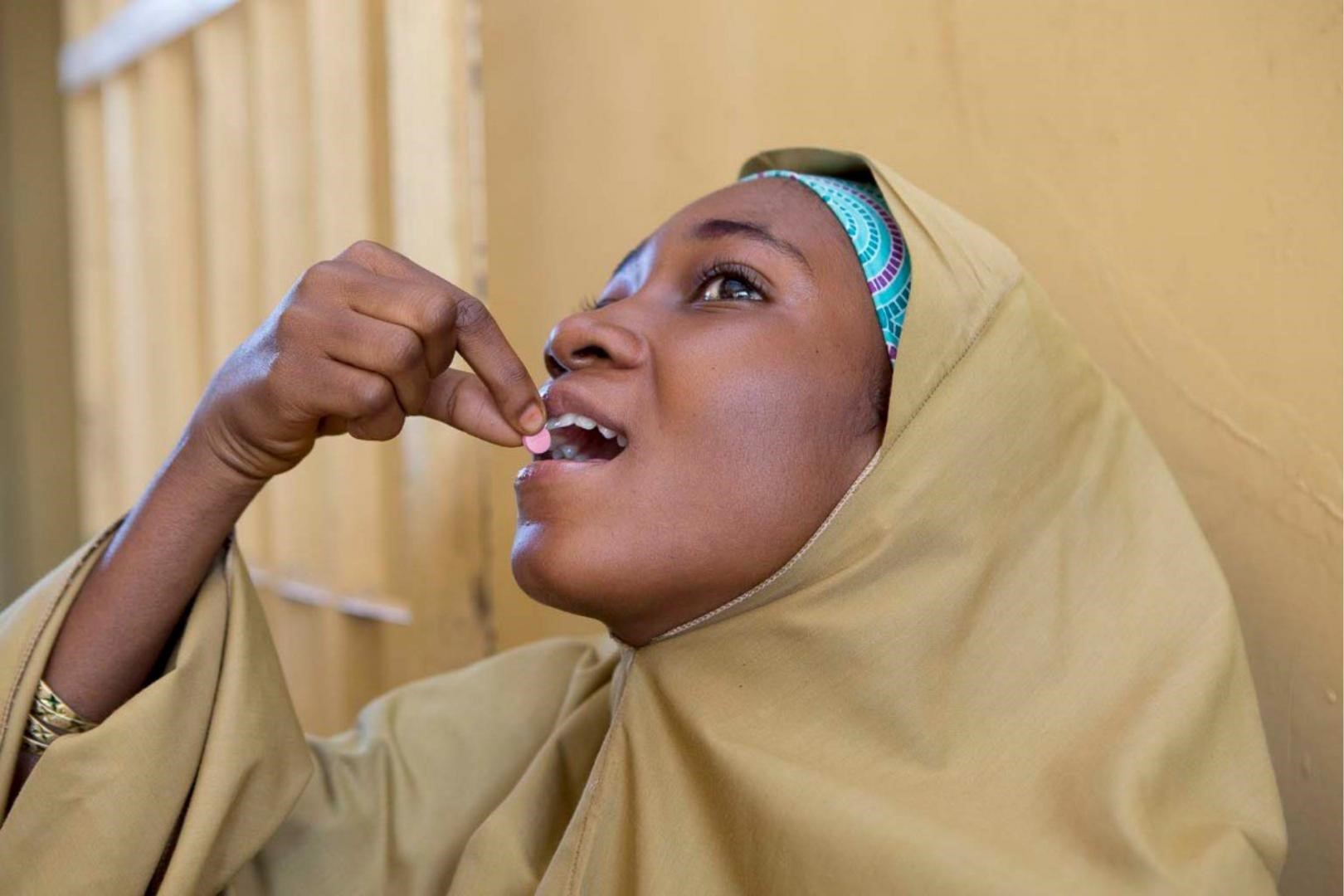
WHO COVID-19 Solidarity Therapeutics Trial
14,200
hospitalized patients randomized
52
countries
600
hospitals
2000
researchers

News
Treatment options under study
The WHO Solidarity PLUS Trial will initially evaluate three treatment arms: artesunate, infliximab and imatinib, in addition to the local standard of care.
These drugs were chosen after careful consideration of potential drugs by an independent panel of experts. Based on available data, these drugs were selected for their potential to reduce mortality.
The drugs were donated by their respective manufacturers for the trial, through Letters of Agreement between WHO and the companies. The companies – Ipca, Johnson and Johnson and Novartis, have agreed to support access to the drugs at reasonable prices if they prove to be effective.
Artesunate
produced by Ipca, is used to treat malaria.
It will be administered intravenously for 7 days, using the standard dose recommended for the treatment of severe malaria.
Artesunate is a derivative of artemisinin, an antimalarial drug extracted from the herb Artemisia annua. Artemisinin and its derivatives have been extensively used in the treatment of malaria and other parasitic diseases for over 30 years, and are regarded as being very safe. The WHO COVID-19 Therapeutics Advisory Group recommended evaluating the anti-inflammatory properties of artesunate.
Imatinib
produced by Novartis, is used to treat certain cancers.
It will be administered orally, once daily, for 14 days. The dose used is the standard maintenance dose, which is at the lower end of the dose that patients with hematological malignancies are given over extended periods.
Imatinib is a small molecule tyrosine kinase inhibitor, formulated as an oral chemotherapy drug used to treat certain types of cancer. Experimental and early clinical data suggest that imatinib reverses pulmonary capillary leak. A randomized clinical trial performed in the Netherlands reported that imatinib might confer clinical benefit in hospitalized Covid-19 patients, in the absence of safety issues.
Infliximab
produced by Johnson and Johnson, is used to treat diseases of the immune system.
It will be administered intravenously as a single dose. The dose used is the standard dose that patients with Crohn’s Disease are given over extended periods.
Infliximab is a TNF alpha inhibitor, a chimeric monoclonal antibody that recognizes human TNF alpha. Anti-TNF biologics have been approved for treatment of certain autoimmune inflammatory conditions for more than 20 years, demonstrating favourable efficacy and safety in restricting broad spectrum inflammation, including in elderly populations who are most clinically vulnerable to COVID-19.
Available results from Solidarity Trial
How the Solidarity Trial works
WHO helps evaluate drugs by randomizing their effects on important outcomes. The WHO Solidarity PLUS trial involves collaboration among hundreds of hospitals in dozens of countries. It began by evaluating four repurposed drugs, and now guided by an independent expert group, is evaluating three new drugs in addition to the local Standard of Care.
Simplicity of procedures
Within each country, the national coordinator invites selected hospitals and helps them get ethical and regulatory approval and study drugs, then patient recruitment can begin. To facilitate collaboration even in overloaded hospitals, patient enrolment and randomization (via a cloud-based GCP-compliant platform) and all other trial procedures are greatly simplified, and no paperwork is required. Once consent has been obtained, electronic entry of anonymized details of a few key characteristics of each patient takes only a few minutes. At the end of patient entry, a random treatment allocation is generated.
Eligibility
Adults (age ≥ 18 years), hospitalized with laboratory-confirmed COVID, not expecting transfer within 72 hours, and, in the view of their doctors, with no contra-indication to any potentially relevant study drug.
Trial entry and randomization
Once electronic data collection has been completed the patient automatically enters the trial and a random allocation of their trial treatment is generated (by an algorithm that ensures eventual balance in the characteristics just recorded between each study drug and its controls) and displayed. The patients will be randomly allocated either to local Standard of Care alone or to local Standard of Care plus one of the study drugs.
Primary and secondary analyses
Primary analyses: In-hospital mortality in all patients. Major secondary analyses: In-hospital mortality subdivided by initial respiratory support. The main safety analyses will be of reported SAEs possibly related to the treatment and SUSARs.
Adaptive design
A global Data and Safety Monitoring Committee will keep the accumulating safety results and major outcome results under regular review. The WHO may recommend adding further treatment arms while the trial is in progress, if evidence emerges that there are suitable candidate therapeutics. Conversely, the WHO may decide to discontinue some treatment arms, especially if the Global Data and Safety Monitoring Committee reports, based on interim analyses, that one or other of the trial treatments definitely does or does not affect mortality.




.jpg?sfvrsn=883c1cb4_12)